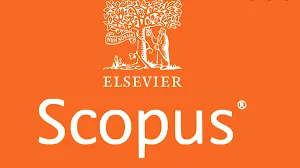
By SJC
Translated by Guo Yishun
Online Media and Global Communication (OMGC), an open-access, peer-reviewed academic journal published quarterly by De Gruyter and hosted by Shanghai International Studies University (SISU), has been officially indexed by Scopus, one of the world’s largest and most authoritative abstract and citation databases. The journal successfully passed the rigorous review process of the Scopus Content Selection & Advisory Board (CSAB), marking a significant milestone in its development and international recognition.
About Scopus
Scopus is the leading global database for peer-reviewed literature across science, technology, medicine, social sciences, and the humanities. Known for its comprehensive bibliometric tools, Scopus supports researchers in tracking research trends, evaluating scholarly impact, and identifying potential collaborations worldwide.
About OMGC
Launched in 2022, Online Media and Global Communication is dedicated to exploring the evolving landscape of global communication and new media. With strong support from SISU’s multilingual academic resources, OMGC places a special emphasis on amplifying voices from non-Western and non-English-speaking regions. The journal promotes multilingual academic exchange by translating the abstracts of each issue into eight languages: Chinese, Arabic, French, Russian, Spanish, Japanese, German, and Italian.
As a platform for inclusive global scholarship, OMGC welcomes submissions on a wide range of topics related to global communication and online media. It publishes regular issues as well as special editions and encourages diverse academic perspectives from scholars around the world.
Call for Submissions
OMGC invites researchers and scholars to contribute articles to its upcoming issues. For submission guidelines, please visit: https://www.degruyter.com/journal/key/omgc/html. To explore the journal’s latest publications and multilingual abstracts, visit: http://omgc.shisu.edu.cn.
The inclusion in Scopus not only reflects the journal’s growing academic influence but also underscores its commitment to fostering open, inclusive, and globally engaged scholarly communication.


 |Hongkou Campus|550 Dalian Road (W), Shanghai 200083, China |Songjiang Campus|1550 Wenxiang Road, Shanghai 201620, China
|Hongkou Campus|550 Dalian Road (W), Shanghai 200083, China |Songjiang Campus|1550 Wenxiang Road, Shanghai 201620, China